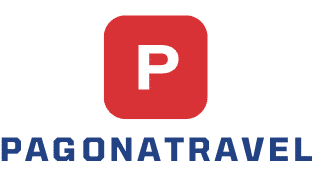When we talk about personalized learning, we often think of a teacher tailoring their instruction to the unique needs and learning styles of their students. But in the digital age, technology providers play an increasingly critical role in personalizing education. Specifically, Artificial Intelligence (AI) has begun to emerge as a game changer in this respect, capable of tailoring the learning experience to the individual student.
This article explores how UK education technology providers can leverage AI to support personalized learning, touching upon the potential of data, innovative learning tools, and the collaboration of teachers and tech. We will also delve into the role of artificial intelligence in offering a more personalized approach to teaching, making education more engaging, and productive for students.
This might interest you : How Can British Niche Cosmetics Brands Crack the Market Using Influencer Marketing?
Utilizing Data for Personalized Learning
Data is the lifeblood of personalized learning as it provides insights into a student’s learning patterns, strengths, and areas of improvement. Educational technology providers are now implementing AI systems that can collect, analyze, and interpret this data to provide a truly personalized learning experience.
AI can track a student’s performance over time, identifying trends and patterns. It can also detect areas where the student is struggling and needs extra help. By analyzing this data, AI can generate personalized learning paths for each student, adapting the content and pace according to their individual needs and progress.
This might interest you : How Can UK Legal Firms Utilize AI for More Efficient Due Diligence Processes?
As well, AI can provide teachers with valuable insights on how their students are faring. With this information, teachers can intervene where necessary, provide timely feedback and support, and adjust their teaching strategies. In this way, data-driven AI systems can enhance the role of teachers in the education process.
Harnessing AI-powered Learning Tools
AI-powered learning tools are another critical aspect of personalized learning. These tools offer students a more engaging and immersive learning experience, adapting the content to their personal learning styles and needs.
For example, adaptive learning platforms powered by AI can modify the content in real time based on a student’s performance. If a student is struggling with a concept, the platform can provide additional resources or change the method of instruction until the student grasps the concept.
Moreover, AI can also facilitate collaborative learning. For instance, AI-powered chatbots can offer students immediate, personalized responses to their queries. These bots can also encourage collaboration and discussion among students, fostering a more interactive and engaging learning environment.
The Role of Teachers in AI-driven Personalized Learning
While AI systems and tools can significantly enhance personalized learning, the role of teachers remains crucial. Teachers bring a personal touch to the learning process, something that AI, despite its sophistication, is unable to replicate.
AI can support teachers by freeing them from administrative tasks, allowing them to focus on their core responsibility: teaching. For example, AI can automate grading, reducing the time and effort teachers spend on this task.
Moreover, AI can facilitate personalized teaching. With AI, teachers can access detailed analytics about each student’s progress, helping them understand the students’ learning patterns. Teachers can use these insights to tailor their instruction to each student’s needs.
Google’s Role in Personalizing Education with AI
Google is one of the leading tech providers that is harnessing AI to personalize education. Google’s G Suite for Education is a suite of cloud-based apps designed to support teachers and students alike.
Google Classroom, part of the G Suite, offers a platform for teachers to distribute and grade assignments, communicate with students, and organize class materials. Moreover, it uses AI to automate grading and provide personalized feedback.
Google’s Cloud AutoML is another AI-powered tool that allows educators to build machine learning models for their specific needs. For instance, teachers can use it to predict student performance based on historical data.
In conclusion, UK educational tech providers have the potential to revolutionize personalized learning with AI. By utilizing data, harnessing AI-powered learning tools, and supporting teachers, these providers can offer a more engaging and productive learning experience for students.
Leveraging AI in Higher Education
Artificial intelligence (AI) can play a significant role not only in primary and secondary education but also in higher education. This section will delve into how UK educational tech providers can leverage AI in higher education.
In higher education, AI can be utilized in various areas such as student recruitment, curriculum planning, and student support. AI can help universities to analyze data about prospective students, helping them to target their recruitment efforts more effectively. For instance, AI can help to identify trends and patterns in student enrollment, allowing universities to refine their recruitment strategies.
In curriculum planning, AI can assist in analyzing data about course performance and student feedback. This can help universities to identify areas for curriculum improvement or development. AI can also personalize the curriculum by adapting it to individual student needs and learning patterns.
Moreover, AI can be instrumental in supporting students in higher education. AI-powered tools such as learning management systems can personalize the learning experience for students, adapting the content and pace of learning to their individual needs. Additionally, AI-powered chatbots can provide students with immediate, personalized assistance, answering their queries and providing them with the resources they need.
The use of AI in higher education also raises issues around data privacy. It’s crucial that educational tech providers ensure the privacy and security of student data. This can be achieved through robust data security measures and clear policies around data use and storage.
The Future of Personalized Learning with AI
Looking ahead, the potential of AI in personalizing education is vast. As AI technology continues to evolve and improve, its capacity to tailor the learning experience to individual students will only increase.
AI will continue to drive innovations in learning analytics, providing deeper insights into student performance and learning patterns. It will also enable the development of more sophisticated learning systems and tools, capable of adapting the content, pace, and mode of instruction to individual student needs.
Furthermore, the integration of AI with other technologies such as virtual reality and social media can create even more engaging and immersive learning experiences. For instance, virtual reality can provide students with realistic, hands-on learning experiences, while social media can facilitate collaboration and discussion among students.
However, despite the exciting potential of AI, it’s crucial to remember the role of teachers in the education process. Teachers bring a human touch to learning, offering personal support and guidance that AI, despite its sophistication, cannot replicate. Therefore, the future of personalized learning with AI should not replace teachers, but rather support and enhance their role.
Conclusion
In conclusion, AI presents exciting opportunities for personalized learning in the UK. By leveraging data, harnessing AI-powered learning tools, and supporting teachers, UK educational tech providers can offer a more engaging and productive learning experience. Companies like Google are already demonstrating the potential of AI in education, offering solutions that automate administrative tasks, personalize learning, and provide deep insights into student performance.
However, as we move towards a future of AI-driven education, it’s crucial to address issues around data privacy and to ensure the continued role of teachers in the education process. With careful planning and thoughtful implementation, UK educational tech providers can lead the way in harnessing the power of AI to revolutionize personalized learning.











